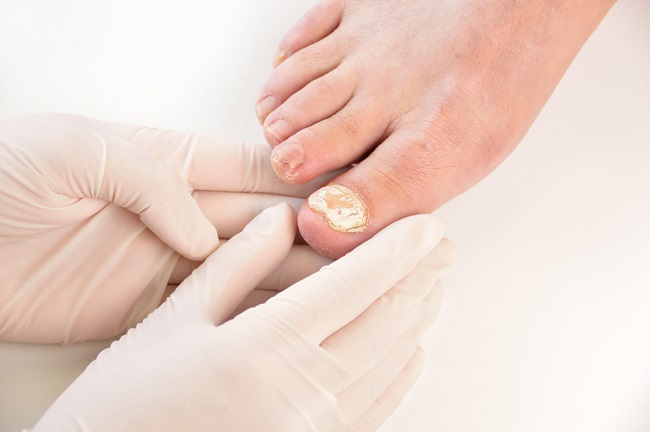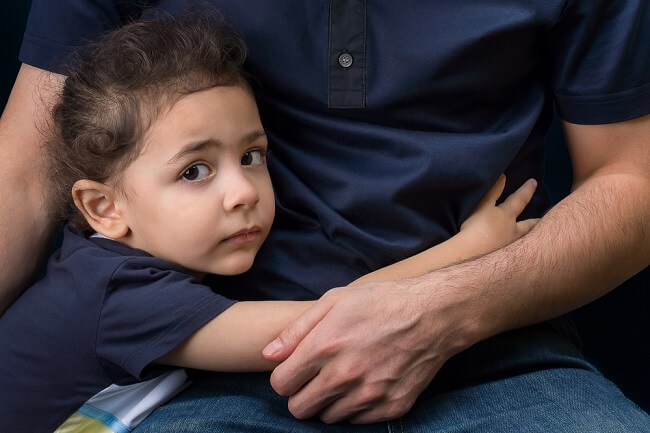What is the ideal 8 month baby weight? The question must arise in the minds of parents whose babies are 8 months old. The baby's weight gain is an indication for parents whether the baby has developed well or not.
Body weight is an important factor for baby's growth and development. If the baby weighs less or even excess, it can indicate a problem with the baby's body.

Based on the growth curve made by the World Health Organization (WHO), the weight of an 8-month-old baby boy ranges from 6.9–10.7 kg, with an average ideal weight of 8.6 kg. Meanwhile, the weight of an 8-month-old baby girl is around 6.3–10 kg, with an ideal weight of 8 kg.
Causes of 8 Months Babies Have Less Weight
Even though at birth the baby has a normal weight, it doesn't necessarily mean that the baby's weight growth will be normal. Infant growth at the age of 1-6 months is fairly fast. After 6 months, his weight growth slowed down or even stopped when he was sick.
If an 8-month-old baby does not gain or lose weight, this condition can be caused by:
- Fatigue or falling asleep before feeding enough
- Weak nipple sucking reflex
- Cleft lip or tongue tie
- Breasts don't produce enough milk
- Not given formula milk in sufficient quantities, if the little one drinks formula milk
- Health problems, such as diarrhea, acid reflux disease, celiac disease, or lactose intolerance
- Serious illness, such as cerebral palsy, infections, Down syndrome, heart disease, anemia, and metabolic (endocrine) disorders
The various conditions above can make it difficult for babies to consume breast milk or complementary foods, so that babies cannot reach their ideal weight. Consult a pediatrician immediately if your baby experiences significant or persistent weight loss.
Tips for 8 Months Baby to Get the Ideal Weight
When entering the age of 6 months, babies have begun to be introduced to complementary foods (MPASI). This is done because breast milk or formula alone is not enough to meet the growing nutritional needs of babies.
An 8-month-old baby generally needs about 750–900 calories per day. While breast milk or formula can only meet 400-500 calorie needs. Therefore, complementary foods are needed that have a balanced nutritional content, such as fat, carbohydrates, and protein to meet the nutritional needs of babies.
There are several types of complementary foods that are good for babies, including:
1. Fruits
Mothers can give fruit with a slightly dense texture to the baby. Fruits that are ideal choices, such as bananas, avocados, apples, peaches, and pears.
2. Vegetables
Mother can introduce vegetables, both cooked and steamed. Types of vegetables that are good for babies aged 8 months, including broccoli, carrots, pumpkin, potatoes, and sweet potatoes.
3. Food sources of protein
Food sources of protein are good for babies because they can increase energy and are good for baby growth. Food sources of protein, including tofu, eggs, meat, and beans (soybeans, peas, or black beans).
Make sure all the food is cooked perfectly and without adding any spices.
4. Foods high in iron
An 8-month-old baby also needs adequate iron intake. Some types of iron-rich foods, such as iron-fortified meat or cereals and whole grains.
5. Dairy products
Some dairy products, such as unsweetened cheese and yogurt, are foods that you can give your 8-month-old baby.
6. Flour products
Mothers can also give an 8-month-old baby flour-based foods, such as pasta, noodles, and toast. Before serving, make sure the food has a soft texture and is easy for the baby to swallow.
Give an 8 month old baby solid food at least 3 times a day, interspersed with snacks if the baby still looks hungry. The solids given must be very soft in texture and have been cut into small pieces so that they are easy to grip.
Avoid feeding your baby with foods that can choke your baby, such as whole grapes, raw vegetables, hard fruit, or hard cheese chunks. Also avoid giving canned food that contains preservatives.
In addition to the weight of an 8-month-old baby, you also need to pay attention to your little one's motor development, such as his ability to grip and reach objects.
For the developmental stage, most babies aged 8 months have started to crawl and invite to communicate, even if only by uttering meaningless sounds. If you feel your little one has growth and development problems, don't hesitate to consult a pediatrician.









